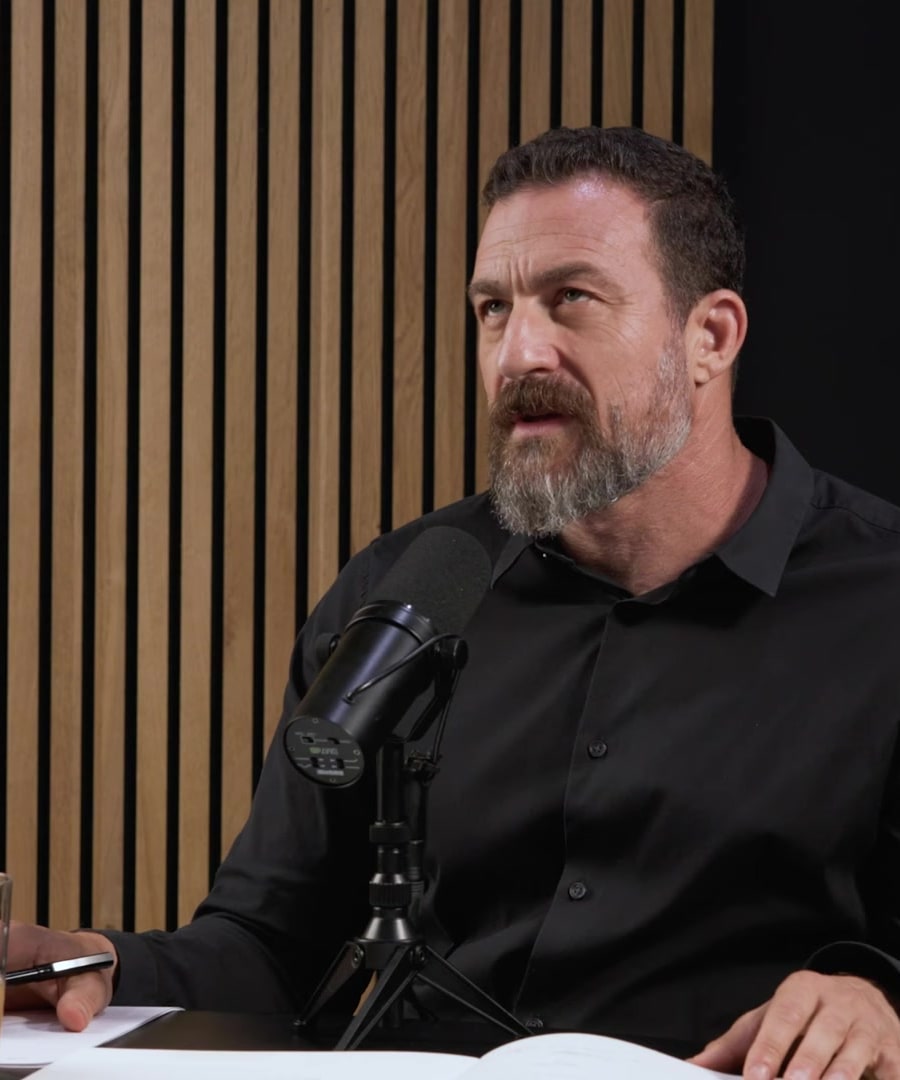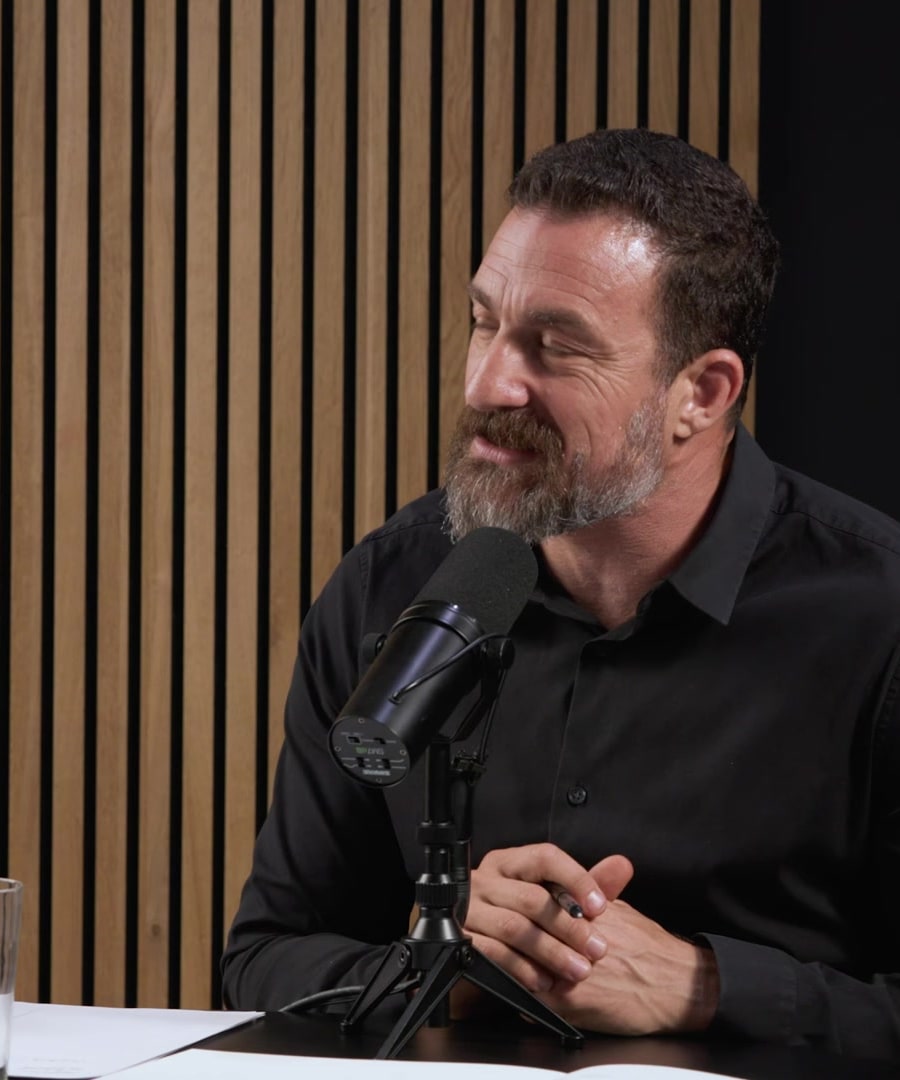Tell me about Marc Brackett
Sources:
is a research psychologist and the Founding Director of the Yale Center for Emotional Intelligence. He is also a Professor in the Child Study Center at Yale University. His research focuses on the role of emotions and emotional intelligence in various aspects of human life, including learning, decision making, and health.
He has appeared on the , among other podcasts.
RELATED QUESTIONSWhat did Marc Brackett discuss on the podcasts?
Sources:
discussed various aspects of emotional intelligence on the , focusing on the definition and practical applications of emotional intelligence. Key points include:
-
Definition and Skills: Emotional intelligence involves reasoning with and about emotions. Dr. Brackett describes it using the acronym RULER, representing Recognizing, Understanding, Labeling, Expressing, and Regulating emotions 1.
-
Intra and Interpersonal Dynamics: Emotional intelligence encompasses self-awareness and understanding others' emotions. It's about both intra- and interpersonal skills, highlighting how individuals co-regulate each other’s emotions 2.
-
Practical Experiences: He shared personal anecdotes to illustrate the importance of knowing oneself and tailoring strategies to manage emotions effectively, especially under stress 3.
-
Misconceptions About Emotional Talk: Dr. Brackett clarified that endlessly discussing feelings can sometimes be counterproductive. True emotional intelligence also entails recognizing when to listen supportively and guide others towards resolving their feelings 4.
-
Personality Traits: Emotional intelligence is distinct from personality traits. Being emotionally volatile doesn't necessarily imply low emotional intelligence. Instead, frequent emotional regulation can enhance this skill 3.
-
Body Awareness: He emphasized that body awareness is a key component of emotional intelligence. While some people are more cognitively oriented, integrating somatic awareness is crucial for a fuller understanding of emotions 5.
By exploring these dimensions, illustrated the multifaceted nature of emotional intelligence and its critical role in personal and professional relationships.
RELATED QUESTIONS-
Are there other episodes on emotional intelligence?
Aside from Using Play to Rewire & Improve Your Brain, there is another episode on the that focuses on emotional intelligence:
- "Dr. Marc Brackett: How to Increase Your Emotional Intelligence" ()
This episode delves into various aspects of emotional intelligence, including understanding emotions, emotional regulation techniques, and the importance of emotional awareness in personal and professional contexts. Dr. Brackett shares strategies and tools to help increase emotional intelligence and underscores its significance in navigating interpersonal relationships and self-awareness.
RELATED QUESTIONSwhat are some of the tools that can help improve emotional intelligence
Sources:
Here are some of the tools that can help improve emotional intelligence as suggested by :
-
Conceptualize Emotions Differently: Instead of thinking of emotions as simple labels like happy, sad, or anxious, consider them as elements that involve both the brain and body. This approach includes understanding levels of alertness, interactions with the external world, and perceptions of your internal state. By doing so, you can develop a richer emotional experience and better understand emotional states (1).
-
Mood Meter App: This app can help you track and understand your emotional states. It provides insights into how different factors affect your mood and offers strategies for managing your emotions (1).
-
Oxytocin and Emotion: Understanding the role of hormones like oxytocin can also be beneficial. Oxytocin is linked to social bonding and feelings of trust, and learning about its impact on emotions can aid in emotional regulation (1).
-
Scientific Approach to Emotions: Taking a structured approach to emotions by engaging with scientific data and tools. This includes understanding the biological and psychological shifts that occur with different therapies (like cognitive-behavioral therapy and psychedelic therapies) to improve emotional intelligence (1).
In addition, offers several strategies:
-
Structured Emotional Engagement: Understanding emotions in a structured way can help in engaging with and sometimes shifting emotions. This structured approach aids in dealing with conflicts, bullying, and emotional expressions effectively (2).
-
Conflict Resolution Strategies: Learning practical strategies to resolve conflicts can enhance your emotional intelligence and improve interpersonal relationships (2).
By incorporating these tools and strategies, you can enhance your emotional intelligence and improve your overall emotional well-being.
RELATED QUESTIONS-
Any expert tips for emotional intelligence?
Sources:
Here are some expert tips for developing emotional intelligence from and :
-
Understand Emotional Intelligence as Skills:
- Emotional intelligence is a set of discrete skills rather than a singular construct. These skills include recognizing, labeling, expressing, and regulating emotions (1).
-
Recognize Emotions:
- Start by recognizing your own emotions and try to read the emotions of others through facial expressions, body language, and vocal tones. This helps in understanding the underlying feelings and the context behind them (1).
-
Label Emotions Accurately:
- Be precise with the words you use to describe your feelings. This helps in better communication and understanding of emotions, both your own and others' (2).
-
Express Emotions Appropriately:
- Know when and how to express emotions depending on the context and the people involved. This includes considering cultural and situational factors (2).
-
Regulate Emotions Effectively:
- Develop strategies to manage your emotions. This can include techniques like mindfulness, cognitive reappraisal, and understanding the impact of physical activities like exercise on your emotional state (3).
-
Body Awareness:
- Increase body awareness as emotional intelligence involves both brain and body. Understanding how physical sensations relate to emotions can help in better emotional regulation (4).
-
Journaling:
- Encourage journaling to articulate and understand emotions better. This practice can reveal underlying feelings like envy or stress, providing deeper insights into emotional states (3).
-
Know Your Personality:
- Understanding your personality traits, such as introversion or extraversion, helps in choosing the best strategies for emotional regulation. Being aware of personal needs and tendencies is crucial for managing emotions effectively (5).
By cultivating these skills, you can enhance your emotional intelligence, leading to improved relationships and emotional well-being.
RELATED QUESTIONS-
Tell me about Marc Brackett
- RELATED QUESTIONS
What did Marc Brackett discuss on the podcasts?
- RELATED QUESTIONS
Are there other episodes on emotional intelligence?
- RELATED QUESTIONS
what are some of the tools that can help improve emotional intelligence
- RELATED QUESTIONS
Any expert tips for emotional intelligence?
- RELATED QUESTIONS








